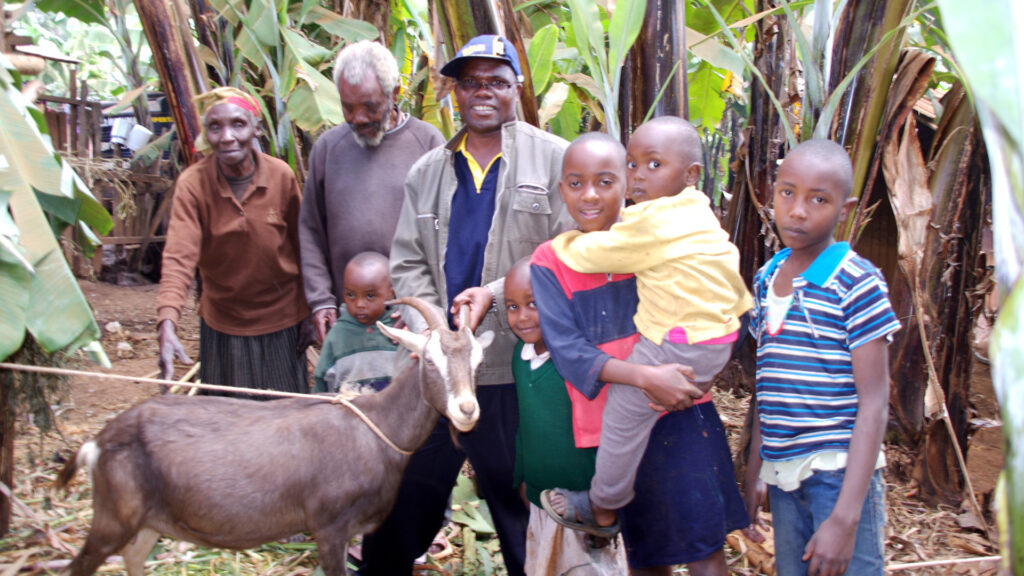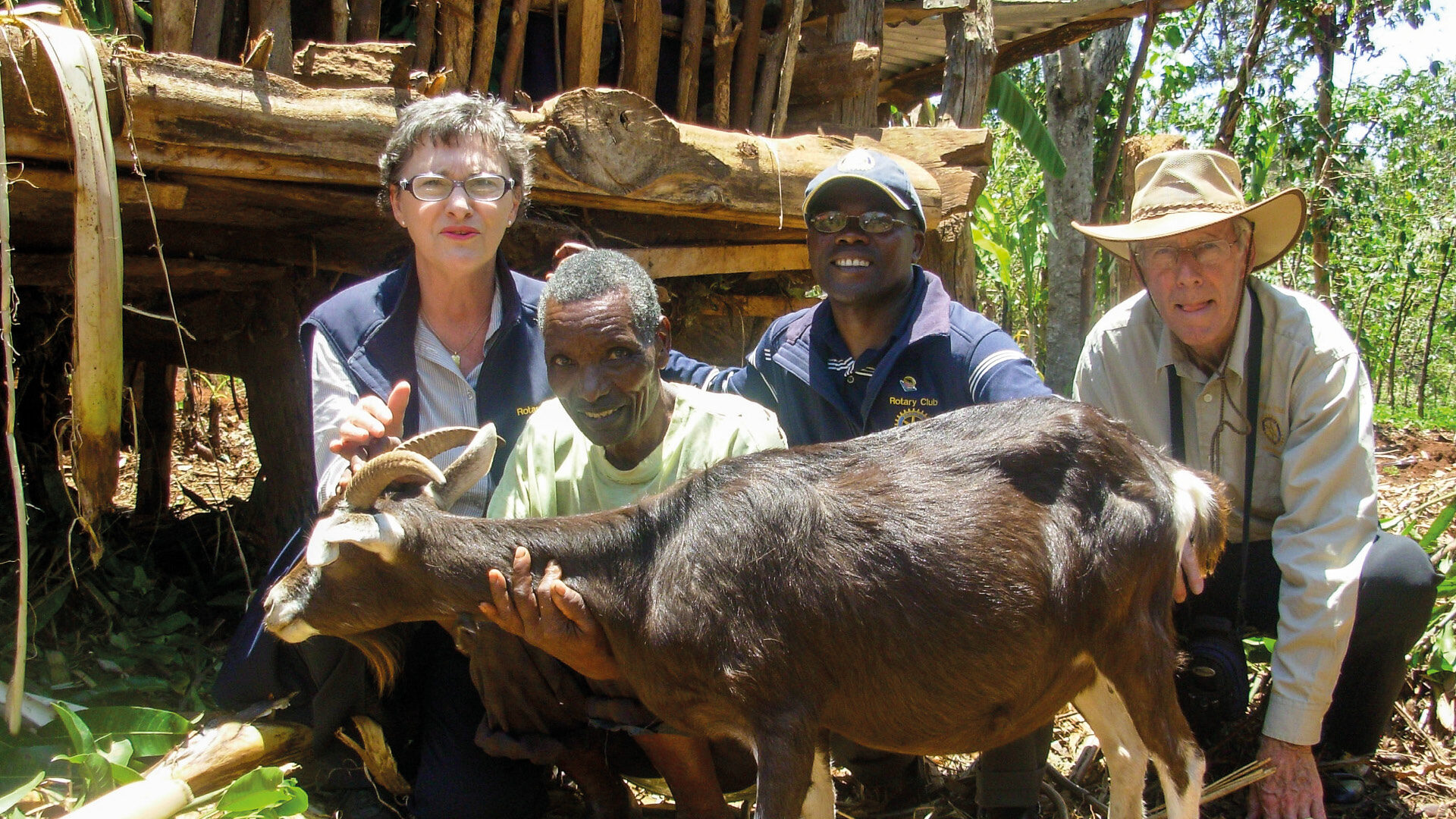
From small things, big things can flourish and grow. In 2007, Wilma Best, of the Rotary Club of Healesville, Vic, was a special guest at a District Conference in Kampala, Uganda. Over 4000 delegates attended an evening celebration, and Wilma was invited to speak about an idea for a project to provide milk for needy children.
A Rotarian from the Rotary Club of Meru, Kenya, was paying close attention. He persevered, looking for Wilma for two days, and then asked if she could supply the children in his care with milk from a cow, or alternatively from goats. He said the school children were dying of starvation and from the scourge of HIV/AIDS. His name was Reverend Father Jason Micheni.
“We corresponded for three years, and then I went to Kenya to look at the conditions,” Wilma said. “Fr Jason was not exaggerating. I saw terrible poverty and children in need, and the extreme conditions Fr Jason worked in.”
In 2010, within the first year of fundraising, the project provided five Holstein Friesian cows to one primary school, feeding high-quality milk to over 300 children. More cows were donated, and the animals were shared with other schools.
Since then, the Milking Cow and Goat Project, with Wilma as project manager, has gained momentum. To keep interest in fundraising, Wilma consulted with the late PDG Dick Garner, who suggested encouraging donors to help by ‘building a cow’. Healesville Rotarians designed and printed flyers and posters featuring parts of the cow for a price – the udder being $500; a leg for $50, and so on.
People and clubs far and wide responded to the idea, and the club kept supporting the children by supplying 12 Holstein Friesian cows that, after calving, give around 20 litres of milk a day.
The project also donated 60 Toggenburg dairy goats to the village grandmothers. Each goat feeds the grandmother and up to 10 orphans every day.
“Now we knew that 600 village children had a drink of milk before school,” Wilma explained. “Before the goats, up to 75 per cent of children came to school with nothing in their stomachs. Every goat was donated by individuals and clubs, and each donor received a certificate for a birthday or Christmas gift.”
This year marks the project’s 10-year anniversary, and it is still feeding many children. The cow and goat manure continues to benefit the environment: it is dug into the soil to improve food productivity and the enriched soil grows food staples such as maize, beans, kale, bananas, tomatoes, potatoes, and watermelon for a treat.
“The group’s next project, beginning soon, is to establish a breeding herd
of 25 indigenous village cows for the rural area of Timau. The cows’ milk will provide up to 500 extremely poor and orphaned children with some food security.”
“We also established a breeding herd of 200 indigenous Galla goats in 2013-14, assisted by a Rotary Foundation global grant,” Wilma said. “This herd is well managed and provides paid work for seven local men. The kid goats are fattened and sold at 12 months to maintain the project.”
The group’s next project, beginning soon, is to establish a breeding herd of 25 indigenous village cows for the rural area of Timau. The cows’ milk will provide up to 500 extremely poor and orphaned children with some food security.
From small beginnings in Meru county, Kenya, the farming projects have developed and supported local communities. Fr Jason is the member nominated as the site project manager of the Rotary Club of Meru and has worked consistently over 10 years to implement the projects.
“Our host club is very proud of the farming projects, and when I travelled there as a visiting Rotarian, they treated me as one of their own family of Rotary,” Wilma said.
Fr Jason has been sponsored to Australia three times in the 10 years since the project’s launch, and personally thanked clubs in District 9810 and individuals for their support. He and Wilma are still planning and implementing projects.
Wilma can hardly believe that her humble project idea is still thriving a decade on.
“Who would have imagined that my words spoken at a District Conference in Uganda about an idea to feed children milk would become a reality and still flourish 10 years on.”
To learn more about the group’s work in Meru District, click here,
or email wilma.best@bigpond.com.
